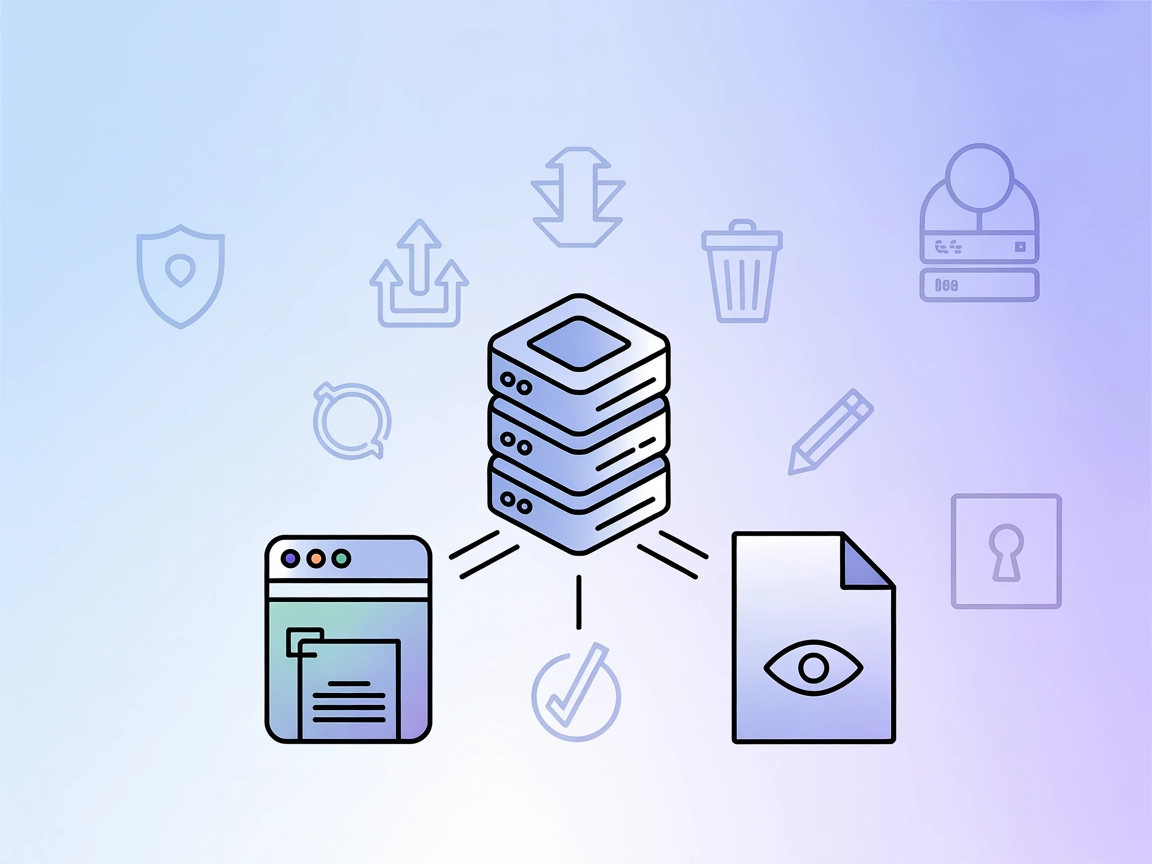
ModelContextProtocol (MCP) Server Integration
The ModelContextProtocol (MCP) Server acts as a bridge between AI agents and external data sources, APIs, and services, enabling FlowHunt users to build context...

Empower your AI assistants with Hunter’s B2B data and lead management tools directly inside FlowHunt, boosting productivity and automating outreach.
FlowHunt provides an additional security layer between your internal systems and AI tools, giving you granular control over which tools are accessible from your MCP servers. MCP servers hosted in our infrastructure can be seamlessly integrated with FlowHunt's chatbot as well as popular AI platforms like ChatGPT, Claude, and various AI editors.
The Hunter MCP Server provides integration between the Hunter API and any LLM provider supporting the Model Context Protocol (MCP), such as Claude for Desktop. This server enables AI assistants to access, query, and manipulate B2B data about people and companies from the Hunter platform using natural language. By exposing Hunter’s powerful API endpoints as tools, the server streamlines workflows like searching for domain information, finding and verifying email addresses, enriching company data, and managing leads. This tight integration empowers developers and business professionals to automate lead generation and enrichment tasks, allowing AI agents to interact seamlessly with external B2B datasets, thus enhancing productivity and accelerating business development processes.
No explicit prompt templates are mentioned in the repository or documentation.
No specific MCP resources are listed in the repository or documentation.
{
"mcpServers": {
"hunter-mcp": {
"command": "uv",
"args": [
"run",
"--with",
"mcp[cli]",
"mcp",
"run",
"PATH_TO_hunter-mcp/main.py"
],
"env": {
"HUNTER_API_KEY": "YOUR_HUNTER_API_KEY"
}
}
}
}
mcp install main.py -v HUNTER_API_KEY=YOUR_HUNTER_API_KEY
{
"mcpServers": {
"hunter-mcp": {
"command": "uv",
"args": [
"run",
"--with",
"mcp[cli]",
"mcp",
"run",
"PATH_TO_hunter-mcp/main.py"
],
"env": {
"HUNTER_API_KEY": "YOUR_HUNTER_API_KEY"
}
}
}
}
{
"mcpServers": {
"hunter-mcp": {
"command": "uv",
"args": [
"run",
"--with",
"mcp[cli]",
"mcp",
"run",
"PATH_TO_hunter-mcp/main.py"
],
"env": {
"HUNTER_API_KEY": "YOUR_HUNTER_API_KEY"
}
}
}
}
Securing API Keys
Always store sensitive API keys using environment variables, not hard-coded in configuration files. Example:
{
"mcpServers": {
"hunter-mcp": {
"env": {
"HUNTER_API_KEY": "${HUNTER_API_KEY}"
},
"inputs": {
"HUNTER_API_KEY": "your-api-key"
}
}
}
}
Using MCP in FlowHunt
To integrate MCP servers into your FlowHunt workflow, start by adding the MCP component to your flow and connecting it to your AI agent:

Click on the MCP component to open the configuration panel. In the system MCP configuration section, insert your MCP server details using this JSON format:
{
"hunter-mcp": {
"transport": "streamable_http",
"url": "https://yourmcpserver.example/pathtothemcp/url"
}
}
Once configured, the AI agent is now able to use this MCP as a tool with access to all its functions and capabilities. Remember to change “hunter-mcp” to whatever the actual name of your MCP server is and replace the URL with your own MCP server URL.
| Section | Availability | Details/Notes |
|---|---|---|
| Overview | ✅ | Integration with Hunter API for B2B data and lead management |
| List of Prompts | ⛔ | No prompt templates found |
| List of Resources | ⛔ | No explicit resources listed |
| List of Tools | ✅ | Domain Search, Email Finder, Email Verifier, etc. |
| Securing API Keys | ✅ | Environment variable method documented |
| Sampling Support (less important in evaluation) | ⛔ | Not mentioned |
This MCP server offers solid integration with the Hunter API, making B2B data and lead management accessible to LLM-powered tools. However, it lacks documented prompt templates and resource primitives, and does not mention advanced MCP features like roots or sampling. The code is open source with a permissive license, but the project is still early with modest community engagement. Overall, it’s a good choice for Hunter API users seeking MCP compatibility, but could benefit from more documentation and MCP feature support.
| Has a LICENSE | ✅ (MIT) |
|---|---|
| Has at least one tool | ✅ |
| Number of Forks | 4 |
| Number of Stars | 7 |
The Hunter MCP Server integrates the Hunter API with any LLM provider supporting the Model Context Protocol (MCP), enabling AI agents to access and interact with B2B data for tasks like domain search, email verification, company enrichment, and automated lead management.
It exposes Domain Search, Email Finder, Email Verifier, Email Enrichment, Company Enrichment, and Lead Creation tools—empowering AI workflows with robust B2B data operations.
Automate lead generation and enrichment, verify emails for campaigns, enrich contacts and companies in your CRM, and manage leads—directly from conversational AI interfaces or custom sales automation flows.
Always use environment variables to store sensitive API keys. Reference your API key in your configuration using ${HUNTER_API_KEY} or equivalent in your environment.
Add the MCP component to your FlowHunt workflow and configure it with your Hunter MCP server’s URL and credentials. This allows your AI agents to access all Hunter tools within your flows.
Connect your AI workflows to Hunter’s world-class B2B data. Automate lead discovery, verification, and enrichment—right inside FlowHunt.

The ModelContextProtocol (MCP) Server acts as a bridge between AI agents and external data sources, APIs, and services, enabling FlowHunt users to build context...

The Model Context Protocol (MCP) Server bridges AI assistants with external data sources, APIs, and services, enabling streamlined integration of complex workfl...

The mcp-rquest MCP Server empowers AI assistants with advanced, browser-like HTTP request capabilities, robust anti-bot evasion, and document-to-Markdown conver...
Cookie Consent
We use cookies to enhance your browsing experience and analyze our traffic. See our privacy policy.